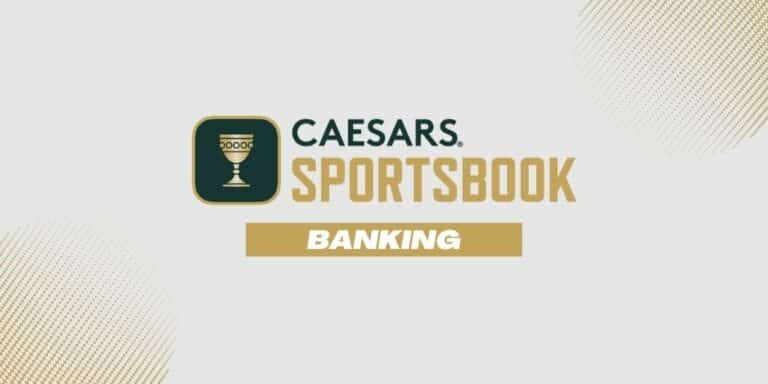Companies featured on this page may be our partners who compensate us if you sign up for one through our links. This doesn't affect our ratings or opinions in any way. Must be 21+. Gambling Problem? Call 1-800-GAMBLER. See full disclosure.
It’s been over 5 years since the U.S. Supreme Court repealed the Professional and Amateur Sports Protection Act (PASPA)—a federal ban on sports betting nationwide (outside of a few states). PASPA's abolition opened the floodgates for online sports betting, with a flurry of states (30+ currently) legalizing the activity ever since.
Offshore sportsbooks already had a foothold in the U.S. market before PASPA’s repeal, giving them an edge in the current sports betting gold rush. Overseas betting operators have been offering services to American players since the early 2000s and have built up a strong following over the years.
Bovada is the most recognizable brand among U.S. offshore books. It still holds a significant market share and is a go-to platform in states without legalized online betting. Unlike domestic licensed sites such as BetMGM, Caesars, and FanDuel, Bovada is based in Latin America and does not fall under U.S. regulatory oversight.
By targeting U.S.-based players, Bovada violates the Wire Act, a six-decade-old federal law that criminalizes interstate sports betting. The reason why Bovada is able to skirt the law and operate in the States is that the American government has little to no jurisdiction over foreign companies.
By law, Bovada is illegal in the United States. However, it is still possible to play in most states, though bettors should be wary of using the platform and other unlicensed sites operating in regulatory limbo.
If you're in a state with legal sports betting, you can compare our picks for the best legal sports betting sites here.
Also, most states allow DFS sites since these are technically a game of skill. You can compare the best DFS sites and apps here, many of which allow picks on player stats against the house, much like player prop parlays in sports betting.
Offers from our partners
It was not that long ago that the Department of Justice shut down three major poker sites in an event dubbed “Black Friday.” Millions of dollars in player funds were lost in the raid, serving as a cautionary tale to bettors interested in playing at unregulated sportsbooks.
Unsuspecting U.S. bettors frequently misunderstand the legal status of offshore sites like Bovada. These conundrums primarily stem from the ambiguous language in gambling-related statutes and vague definitions of their application. Here, we’ll clear up any confusion regarding Bovada’s legality and provide a state-by-state rundown of the laws governing offshore betting.
States Where You Can Use Bovada Even Though It Isn’t Legal
Since Bovada operates in a gray area, it has a wider reach than any regulated U.S. sportsbook. Players from most states can access Bovada except for Delaware, New Jersey, New York, Maryland, and Nevada.
While Bovada accepts registrations from players in 45 states, that doesn't mean it’s legal there. In fact, it's quite the opposite—the company breaks both the Wire Act and the Unlawful Internet Gaming Enforcement Act by accepting bets from abroad and processing illegal transactions.
Below is the breakdown of Bovada’s legal status for each state:
- Is Bovada legal in Alabama? No, but residents from Alabama can sign up for an account with Bovada.
- Is Bovada legal in Alaska? No, but it’s possible to register with Bovada while in Alaska. However, under Alaska's forfeiture law, the state can confiscate gambling devices and stake money.
- Is Bovada legal in Arizona? No, but Bovada takes bets from Arizona residents. The Copper state launched a legal market for online betting in September 2021. You can see the regulated and legal sportsbooks in Arizona here.
- Is Bovada legal in Arkansas? No, it isn’t. Nevertheless, Arkansas residents can create an account with Bovada.
- Is Bovada legal in California? No, but Bovada is accessible from California. Recently, Californians rejected proposals that would legalize statewide sports betting.
- Is Bovada legal in Colorado? No, although it’s possible to register with Bovada from Colorado. The Centennial State legalized mobile sports betting in 2020. You can see the regulated and legal sportsbooks in Colorado here.
- Is Bovada legal in Connecticut? No, it isn’t. However, you can sign up for an account with Bovada from CT. The Constitution State began offering online sports betting in 2021. You can see the regulated and legal sportsbooks in Connecticut here.
- Is Bovada legal in Delaware? No, neither does Bovada accept players from Delaware.
- Is Bovada legal in Florida? No, it isn’t. You can still register for an account with Bovada from Florida
- Is Bovada legal in Georgia? No, but Bovada accepts registrations from players situated in Georgia.
- Is Bovada legal in Hawaii? No, but you can register with Bovada from Hawaii. The Aloha State has some of the most stringent gambling laws in the country, prohibiting most forms of gambling.
- Is Bovada legal in Idaho? No, it isn’t. That said, you can set up a Bovada account from Idaho.
- Is Bovada legal in Illinois? No, but you can register with Bovada from Illinois. The Prairie State launched legal sportsbooks in 2020. You can see the regulated and legal sportsbooks in Illinois here.
- Is Bovada legal in Indiana? No, but players in Indiana can sign up for an account with Bovada. Indiana legalized sports betting in 2019. You can see the regulated and legal sportsbooks in Indiana here.
- Is Bovada legal in Iowa? No, but you can register with Bovada from Iowa. The Hawkeye State launched online books in 2019. You can see the regulated and legal sportsbooks in Iowa here.
- Is Bovada legal in Kansas? No, it isn’t. Nevertheless, you can sign up for an account with Bovada from Kansas.
- Is Bovada legal in Kentucky? No, but Kentucky residents can register with Bovada.
- Is Bovada legal in Louisiana? No, but you can open an account with Bovada from Louisiana. Legal betting apps went live in Louisiana in November 2021.
- Is Bovada legal in Maine? No, but you can sign up with Bovada from Maine.
- Is Bovada legal in Maryland? No, Bovada isn’t legal in Maryland, nor does it accept bets from MD players.
- Is Bovada legal in Massachusetts? No, it isn’t. However, Massachusetts players can set up an account at Bovada.
- Is Bovada legal in Michigan? No, but you can register with Bovada from Michigan. The Wolverine State was one of the first jurisdictions to launch online books after the PASPA overrule. You can see the regulated and legal sportsbooks in Michigan here.
- Is Bovada legal in Minnesota? No, but you can sign up with Bovada from Minnesota.
- Is Bovada legal in Mississippi? No, although it’s possible to create an account from this state.
- Is Bovada legal in Missouri? No, but it’s possible to set up a Bovada account from Missouri.
- Is Bovada legal in Montana? No, it isn’t. Sports betting is illegal in Montana altogether. You can, however, register for a Bovada account in Montana.
- Is Bovada legal in Nebraska? No, but you can register with Bovada while in Nebraska.
- Is Bovada legal in Nevada? No, and you can’t sign up with Bovada within Nevada lines. You can see the regulated and legal sportsbooks in Nevada here.
- Is Bovada legal in New Hampshire? No, but you can register with Bovada from New Hampshire. The state also launched online sports betting in 2020. You can see the regulated and legal sportsbooks in New Hampshire here.
- Is Bovada legal in New Jersey? No, Bovada doesn’t take bets from NJ residents. You can see the regulated and legal sportsbooks in New Jersey here.
- Is Bovada legal in New Mexico? No, but players from New Mexico can access the Bovada website.
- Is Bovada legal in New York? No, it isn’t. Also, Bovada doesn’t accept players from New York. You can see the regulated and legal sportsbooks in New York here.
- Is Bovada legal in North Carolina? No, but Bovada accepts registrations from NC residents.
- Is Bovada legal in North Dakota? No, but players can still create an account with Bovada.
- Is Bovada legal in Ohio? No, nevertheless, you can still sign up for a Bovada account from Ohio.
- Is Bovada legal in Oklahoma? No, but it’s possible to register with Bovada from Oklahoma.
- Is Bovada legal in Oregon? No, although you can access Bovada from Oregon. You can see the regulated and legal sportsbooks in Oregon here.
- Is Bovada legal in Pennsylvania? No, but you can register with Bovada from this state. You can see the regulated and legal sportsbooks in Pennsylvania here.
- Is Bovada legal in Rhode Island? No, however, you can sign up for a Bovada account from Rhode Island. You can see the regulated and legal sportsbooks in Rhode Island here.
- Is Bovada legal in South Carolina? No, but you can register with Bovada from South Carolina.
- Is Bovada legal in South Dakota? No, it isn’t. Nevertheless, players can still create an account with Bovada.
- Is Bovada legal in Tennessee? No, it isn’t. However, you can still play at Bovada from Tennessee. You can see the regulated and legal sportsbooks in Tennessee here.
- Is Bovada legal in Texas? No, but you can access Bovada from Texas.
- Is Bovada legal in Utah? No, it isn’t. However, players can register for a Bovada account from Utah.
- Is Bovada legal in Vermont? No, but you can play with Bovada from Vermont.
- Is Bovada legal in Virginia? No, although you can set up an account with Bovada while in Virginia. You can see the regulated and legal sportsbooks in Virginia here.
- Is Bovada legal in Washington? No, it isn’t. You can still register an account with Bovada from Washington.
- Is Bovada legal in Washington, D.C.? No, but you can access Bovada from D.C.
- Is Bovada legal in West Virginia? No, but you can play at Bovada from West Virginia. You can see the regulated and legal sportsbooks in West Virginia here.
- Is Bovada legal in Wisconsin? No, but you can open an account with Bovada from Wisconsin.
- Is Bovada legal in Wyoming? No, but it’s possible to sign up at Bovada from Wyoming. You can see the regulated and legal sportsbooks in Wyoming here.
Is Bovada Legal? The Long Answer
The current status of offshore betting is rather complex, with the two principal gambling laws addressing the topic both outdated and vague. For this reason, offshore books like Bovada are often misconstrued as legal and/or secure.
Two main pieces of legislation curtail offshore gambling directly or indirectly: the Wire Act of 1961 and the Unlawful Internet Gambling Enforcement Act of 2006.
Wire Act
U.S. Attorney General Robert F. Kennedy introduced the Wire Act in 1961. The legislation sought to curb illegal bookmaking. Specifically, wire communications were targeted as a means of placing bets between states. Here’s an excerpt from the law:
“Whoever being engaged in the business of betting or wagering knowingly uses a wire communication facility for the transmission in interstate or foreign commerce of bets or wagers or information assisting in the placing of bets or wagers on any sporting event or contest, or for the transmission of a wire communication which entitles the recipient to receive money or credit as a result of bets or wagers, or for information assisting in the placing of bets or wagers, shall be fined under this title or imprisoned not more than two years, or both.”
For many years, there have been debates about the scope of the Wire Act. Proponents of illegal (offshore) online gambling argued that the law doesn’t apply to modern gambling because it prohibits only transmission via telegraph and telephone, not via satellite and, by extension, the internet. Additionally, there were several disputes over whether the Act applied only to sports betting or to all forms of online gambling.
According to the Department of Justice (DOJ), the intent of the Wire Act in the early 2000s was to cover all forms of online gambling. However, in 2011, Assistant Attorney General Virginia A. Seitz issued a memorandum stating that the Wire Act only applies to sports betting.
In January 2019, the DOJ once again took the position that the act encompasses all forms of gambling over the internet, overturning the 2011 memorandum. A U.S. district judge overturned the expanded prohibition a few months later, ruling that the Wire Act only applies to sports betting.
Despite its questionable effectiveness, the Wire Act is still one of the most significant federal gambling laws. It bans the transmission of interstate bets, which means that all wagers made at offshore books like Bovada are illegal. The law does not apply to individual bettors but rather to businesses (read offshore gambling companies).
UIGEA
The second major law that tackles offshore betting is the Unlawful Internet Enforcement Act, which took effect in 2006. It prohibits financial institutions from processing payments to non-regulated gambling sites, which includes offshore sportsbooks like Bovada.
The legislation does not forbid gambling on offshore sites per se. It indirectly targets payment processors, thus preventing players from funding their accounts with credit cards, wire transfers, ACH payment systems, and checks.
In the aftermath of the UIGEA, many banks and wire transfer companies backed down due to the fear of criminal charges. As a result, they stayed away from offshore gambling transactions. In 2008, the Department of Treasury and the Federal Reserve Board issued a joint final rule requiring all payment systems to identify and block restricted transactions.
As a means of circumventing the UIGEA, offshore operators have started offering cryptocurrencies and e-wallets for deposits and withdrawals. Even though you may be able to fund your account using these alternative methods, withdrawing funds from an offshore sportsbook to an American bank would undoubtedly raise eyebrows and possibly lead to legal troubles.
Black Friday
Offshore operators were heavily affected by the UIGEA. Some brands have resorted to using e-wallet providers like Cash App and Venmo as a workaround. These payment processors serve as an intermediary between a gambling service provider and a financial institution, so UIGEA-regulated banks do not process payments directly.
Several publicly traded operators discontinued their U.S. operations after the UIGEA was passed. One example was PartyGaming (now owned by Entain and operating legally in New Jersey), the largest poker room in 2006. PartyGaming's stocks tumbled 70% after leaving the U.S. market.
The third group of offshore operators established fictitious companies to conceal their incomes. This led to the infamous Black Friday scandal involving three of the largest online poker operators at the time—PokerStars, Full Tilt Poker, and Absolute Poker.
The executives of these sites were charged with money laundering, illegal gambling, and bank fraud. Consequently, the DOJ seized the assets of the accused brands and froze more than 70 financial accounts, preventing players from withdrawing their funds. So far, only PokerStars has repaid its customers.
Black Friday scenarios involving offshore sportsbooks like Bovada are unlikely but not impossible.
Is Bovada Safe?
Not quite. It looks like Bovada is generally paying its winners, but some users have reported stalled payouts on Reddit and other betting forums.
Furthermore, Bovada has faced a number of legal issues throughout its turbulent history. Calvin Ayre and three other Bodog (Bovada's predecessor) executives were charged in 2012 with illegal gambling and money laundering. Eventually, Bodog retreated from the United States and changed ownership. The Bovada brand was created as an offshoot for the U.S. market while Bodog left the country permanently.
Aside from its questionable reputation, Bovada offers little to no consumer protection. If you have a dispute with the company, you won't have anyone to turn to for resolution. Since offshore operators report to no U.S. authorities, you won’t receive protection.
Last but not least, the federal government may decide to pursue offshore operators at any moment, and who says you won't lose your money in the process?
>> Want to See Legal & Licensed Options? Check Out Our Best Online Sportsbooks Guide







